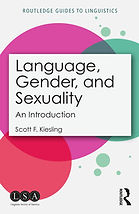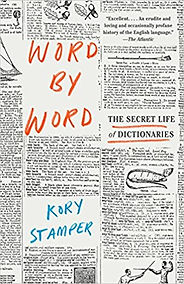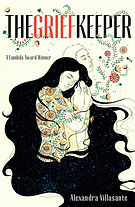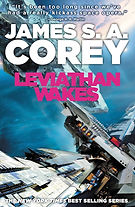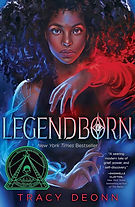Linguistics Books for Teachers
Teaching Language Variation in the Classroom: Strategies and Models from Teachers and Linguists
Edited by Michelle D. Devereaux and Chris C. Palmer
This volume features real-world ideas for teaching about language variation and language ideologies in the K-12 classroom. Contributors are real classroom teachers, with commentary by linguists who work with teachers and students. The website (linked above) also includes several examples of lessons and projects that you can implement in your classroom. Full disclosure: I contributed a chapter to this volume.
Linguistic Justice: Black Language, Literacy, Identity, and Pedagogy
By April Baker-Bell
This book combines linguistic theory and history with evidence-based pedagogy to create a challenging, highly useable guide to decolonizing the ELA curriculum. Baker-Bell forces English teachers to grapple with the ways ELA has traditionally upheld white supremacy through language, but also offers workable strategies for ELA teachers who are trying to dismantle linguicism in the classroom. This book should absolutely be required reading for every teacher.
Whether you're looking to learn more about linguistics, integrate linguistics into your curriculum, or teach a linguistics course, these books can help you gain or review your content knowledge and give you ideas for how to present that content in a way that's accessible to your students. In most cases, I've linked these titles to their publisher's page, but they can be found at large booksellers as well as your favorite independent book store.
We Do Language: English Language Variation in the Secondary English Classroom
by Anne H. Charity Hudley and Christine Mallinson
This important and widely cited book is invaluable for the ELA teacher looking to integrate linguistics into their course and to approach ELA with an antiracist, antibias lens. This book shows that you don't have to be a linguistics teacher to teach about language through writing and literature.
Morpheme Magic: Lessons to Build Morphological Awareness for Grades 4-12
by Deb Glaser
This text--along with the corresponding word cards and website--shows teachers how to improve students' morphological awareness. In other words, students can improve word recognition by learning how to break words up into prefixes, suffixes, and roots. I'm really excited to be leading some PD based on this book for other teachers in my district this year. My only wish is that this book helped teachers have a little more fun with morphemes--like how new words get formed, or how other languages use morphemes.
Linguistics for Everyone: An Introduction
by Kristin Denham and Anne Lobeck
There are lots of great introductory linguistics textbooks out there, and everyone has their favorites. This one is mine. This is a great choice for teachers with little or no linguistics background to teach themselves, and also a good choice for teachers with some linguistics background to brush up. The prose is clear and never gets bogged down with heavily academic language. The examples are relevant and fun. It's easy to pick out what you need to learn, and the topics are clearly organized and accessible.
by Kristin Denham and Anne Lobeck
When I asked my co-teacher, who doesn't have a background in linguistics, what was the most helpful text she read in preparing to teach linguistics, she named this book. In clear, digestible prose, this book explains the relevance of linguistics to many career fields, and teaches quite a bit about linguistics along the way.
Critical Language Pedagogy: Interrogating Language, Dialects, and Power in Teacher Education
by Amanda J. Godley and Jeffrey Reaser
This is the book I wish had been around when I was doing my teacher training. Godley and Reaser studied teachers' attitudes about language, language variation, and identity. They then detail a course they taught to teachers about critical language pedagogy, and show how teachers can help students analyze language critically.
Language, Gender, and Sexuality: An Introduction
by Scott F. Kiesling
Our understanding of language's relationship to gender and sexuality has evolved over the past few decades along with our understanding of gender. When I decided to bolster my unit on language and gender (Policing Bodies, Policing Voices), it was hard to find literature that reflected current understandings of gender. While maybe a bit more academic than some of the selections on this list, this book presents the most up-to-date research on language and gender in a clear, accessible format.
The 5-Minute Linguist: Bite-Sized Essays on Language and Languages
Edited by Caroline Myrick and Wat Wolfram
If I had to choose one text that was the most useful on a day-to-day basis for teaching high school linguistics, it would be this one. Each chapter is a 2- to 2 1/2- page quick essay by different linguists on topics from "What Causes Foreign Accents?" to "How is Language Used on Social Media?" Each chapter is short and accessible, perfect for reading with students.
Because Internet: Understanding the New Rules of Language
by Gretchen McCullough
This makes the "nonfiction books to read with your students" list too, because it's not technically a teaching book. But if you're wondering how to approach the study of language with your students, this book couldn't be a better model. Not only does it provide examples of current internet language, but it shows students how the language they use online can be a data set for their own analysis.

Sold on Language: How Advertisers Talk to You and What This Says About You.
by Julie Sedivy and Greg Carlson
This book was invaluable as my co-teacher and I designed our units on language, advertising, and the media. This book applies linguistic concepts like phonology, sociolinguistics, and pragmatics to an understanding of how the media uses language to sell and persuade.

Edited by Anne H. Charity Hudley, Christine Mallinson, and Mary Bucholtz
This book features chapters by several linguists and educators who are bringing linguistics to people outside of academia. Available free through open access on the Oxford University Press Website.
What am I forgetting? Send me your suggestions here!
People are fascinated by linguistics. Many adults don't know what it is, but throw out some fact or question about language at the next party you go to and watch their attention turn to you. That's why there are so many great books about language and linguistics that are written for a popular audience, and a lot of them are accessible to high school students. This is a list of nonfiction books I've used as book clubs (or literature circles) in my class. The book club approach allows students to dig deeper into a topic that we might not get to spend a lot of time on. These books can also provide teachers with more background information or content knowledge about linguistics. Click on the image to learn more about the book!
Got more suggestions? Send them to me here!
YA Fiction & Memoir About Language and Linguistics
Since I first started teaching linguistics as an ELA class, I've been on the lookout for fiction--especially YA fiction--that could be used in a linguistics class. To my surprise when I first started looking, there was no list out there that specifically dealt with YA (or YA-adjacent) books about language or linguistic identity. So I made my own.
I've mostly approached these books via book clubs (literature circles). Students choose a group and a book to read in that group, and then they meet to discuss the book and complete assignments related to that book. Starting this school year, we'll be using Sara Novic's phenomenal novel True Biz as a whole-class novel. I was so excited when this book came out, because it is literally perfect for this class. If you haven't read it, check it out.
I was strongly influenced by April Baker-Bell's sample unit on The Hate U Give in her book Linguistic Justice, as well as Charity Hudley and Mallinson's fantastic book We Do Language. As students read, we used the following questions to focus students' reading. These questions were inspired by, and sometimes taken verbatim from, this article by Ian Cushing and Anthony Carter. It's publicly available and worth a full read.
The focus questions we used were these:
-
Where do you see that characters in this book have internalized ideas about their language being “incorrect” or problematic? Alternatively, where do you see characters taking pride in using a nonstandard or non-dominant language variety?
-
Where do you see non-privileged/speakers of non-privileged language varieties framed as a problem to be fixed or treated? What words/phrases do characters or the narrator use to describe language or language users?
-
Where do you see examples of how the characters’ language use is anchored in their age(s), race(s), social class(es), and/or gender(s)?
-
How does the setting of the book influences the varieties of language(s) spoken by the characters?
-
How does the author represent language (phonology, syntax, etc.) in text? Does the author create a contrast between languages and/or dialects? Why do you think the author made that choice?
-
What societal structures and institutions in the book are trying to regulate language?
-
Work with your group to create working definition of language discrimination, based on your book, other readings in this class, and your general life experience. You’ll share the definition you create with the rest of the class so we can discuss it.
HUGE thanks to my friend and Library Media Specialist Mary Millette, who keeps me current. Many of these books are her recommendations.
Got more suggestions? Send them to me here!
Documentaries, Videos, & Social Media
How to Tell a Realistic Fictional Language from a Terrible One
All Things Linguistic has a much more exhaustive list here!
Documentaries
We Still Live Here (As Nutayunean) A history of the Wampanoag Language Reclamation Project. Always a hit with my students.
Talking Black in America African-American Vernacular English / Black Language. A compelling documentary that covers an incredible amount of information in a short amount of time.
The Linguists: Two linguists travel the world to document endangered languages
Do You Speak American?: 3-part PBS series on American dialects. Very old, but great for using small clips
Stephen Fry's Planet Word: 5-part series on language change, acquisition, and storytelling
TED Talks
Web Series, Videos, & YouTube Channels
The Significance of Linguistic Profiling
Why Language is Humanity's Greatest Invention
How Language Shapes the Way We Think
Who Counts as a Speaker of a Language?
Linguistics in Space: Aliens and Long-Distance Space Travel
Tik Tok
Please note: Most of these accounts post on linguistics as well as other topics. Listing does not imply endorsement of all posts. I trust these creators to post accurate information, but I do not vet every post.
Websites & Other Resources
Learning about linguistics
All Things Linguistic: A goldmine of resources about linguistics
Lingua Obscura: Relevant, accessible articles, perfect for class texts
The Endangered Languages Project: Interactive website about endangered languages
Membean: Roots & Stems: Using morphology to learn vocabulary
The Art and Science of Beatboxing: Using beatboxing to learn about phonetics
Sociolinguistics Artifacts: A treasure trove of sociolinguistics resources
Superlinguo: A blog by one of the co-hosts of the Lingthusiasm podcast
EtymOnline: Online etymology dictionary, fully accessible
The Language and Life Project: On dialects and languages in the US
EngLangBlog: For A Level students & teachers in England, but useful for all
Lessons and activities
"Using Young Adult Fiction to Interrogate Raciolinguistic Ideologies in Schools"
"High School Linguistics: A Secondary School Elective Course"
"Linguistics in Middle School: Incorporating Linguistics into Project-Based Learning"
Articles About Teaching Linguistics
It's really hard to narrow this section down! Please let me know what resources would be most helpful here!
A title goes here. Click to edit and add your own.
Podcasts about Linguistics and Language
Podcasts can be a great resource in the classroom, and there are so many quality linguistics podcasts out there, they can really add to a linguistics class. I approach them like a book club or literature circle: students form small groups, and each group chooses a podcast episode (usually from a list I've narrowed down for them). They listen to the podcast independently and take notes or create an outline as they listen. They also prepare discussion questions ahead of time. Then they meet for a 20-30 minute discussion of the episode they listened to.









